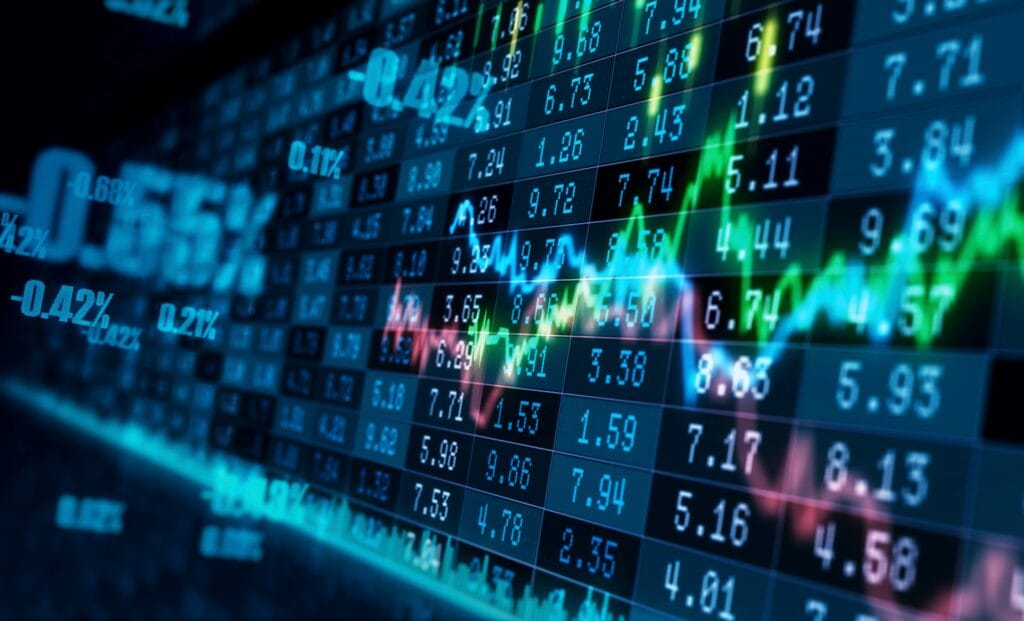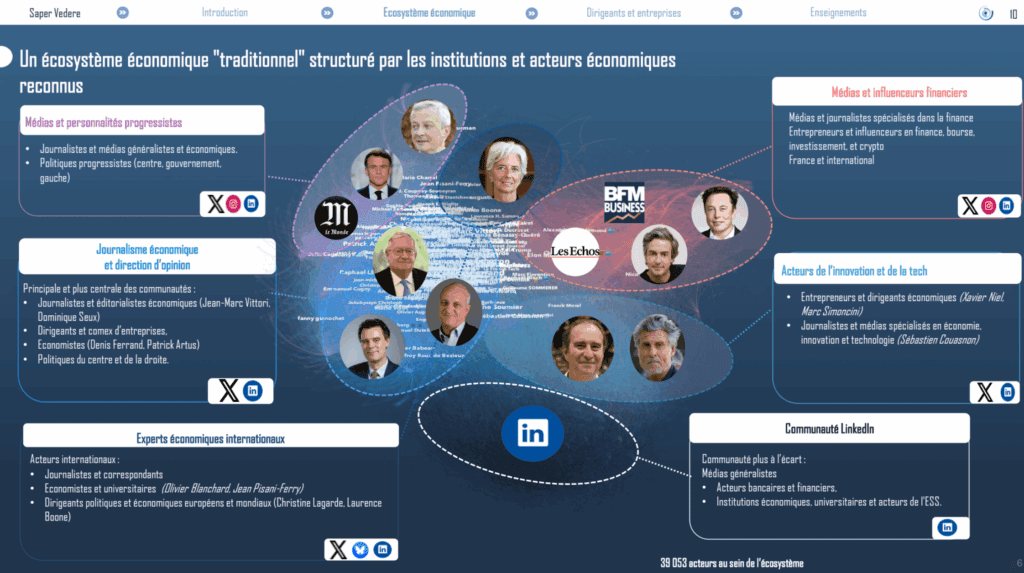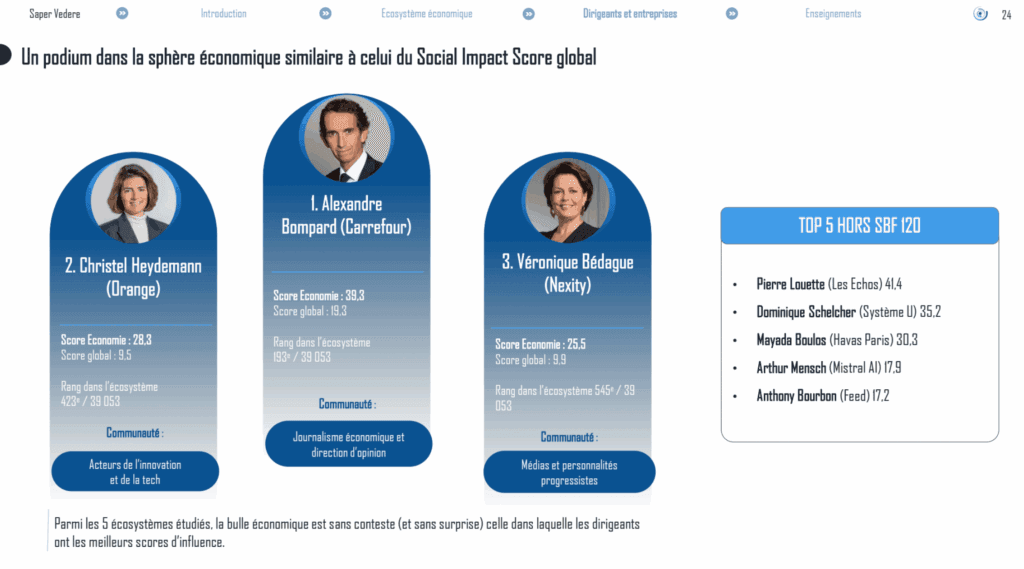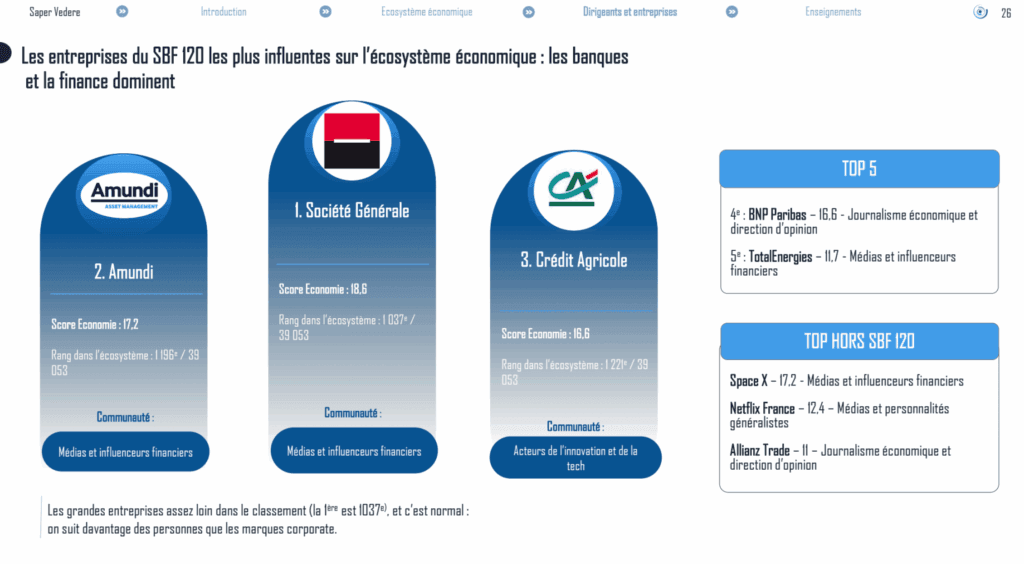Sommaire
Study of the economic sphere

Saper Vedere continues its series of analyses on influence dynamics within major societal ecosystems. After the political and media spheres, this study focused on the economic and financial ecosystem. Objective: to understand influence mechanisms, map active communities, and analyze the position of executives and companies within the SBF 120 using the Social Impact Score.
1. Analysis of the Economic and Financial Ecosystem
A structured yet evolving ecosystem
The analysis of a panel of 400 economic and financial decision-makers, journalists, and analysts reveals a highly institutionalized environment, dominated by:
-
Economic journalists and columnists (Jean-Marc Vittori, Dominique Seux).
-
Renowned economists (Denis Ferrand, Patrick Artus).
-
Business leaders and political figures (Bruno Le Maire, Emmanuel Macron).
This ecosystem relies mainly on X (formerly Twitter) and LinkedIn, the two essential platforms to reach decision-makers and influencers.

New communities: the rise of “influencers”
Alongside traditional actors, a new generation of financial influencers is reshaping the rules:
-
Strong presence on TikTok, Instagram, YouTube, in addition to X and LinkedIn.
-
Communities with several hundred thousand followers.
-
A more educational and conversational tone, fostering engagement and co-creation.
While their audience is primarily the general public, their growing role compels organizations to monitor them and consider targeted partnerships.
2. How influential are SBF 120 leaders within the economic bubble?
The most influential leaders
The top SBF 120 CEOs in the economic sphere mirror the overall Social Impact Score ranking:
-
Alexandre Bompard (Carrefour)
-
Christel Heydemann (Orange)
-
Véronique Bédague (Nexity)
Keys to their influence:
-
-
A personal and committed voice that goes beyond corporate issues (e.g., purchasing power, urban planning, innovation).
-
360° media presence (traditional media + social media).
-
A clear and consistent editorial strategy, adapted to platform codes.
-

Companies: influence still limited
Large financial institutions (Société Générale, Amundi, Crédit Agricole, BNP Paribas) dominate the corporate ranking, yet remain relatively unnoticed by economic decision-makers.
Findings:
-
-
Communication remains too corporate (HR, CSR, internal life), offering little appeal to economic circles.
-
Limited real influence on LinkedIn (only 6 out of 120 companies are actually followed).
-
Promising experiments: Crédit Agricole on TikTok and BeReal, Amundi with the Finfluencer Awards.

-
